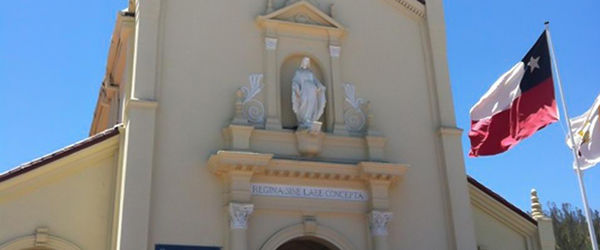“There was a hermit who lived in the woods,” begins poem 41 of the Robert Lax collection of contemplative words, “In the Beginning was Love,” edited by S.T. Georgiou. The writings collected here are about half poetry and half journal entries, though the latter are as precise as prose poems. Belief, lifestyle and identity as inextricable parts of the person’s whole are emphasized throughout the book.
While earning his BA at Columbia University, Lax befriended Thomas Merton, Ad Reinhart and Edward Rice. Following a few years of work, Robert Lax, born Jewish, converted to Catholicism at the age of twenty-eight. This year celebrates the centennial of Robert Lax, as well as that of his friend, Thomas Merton.
“It might be said that the things [the hermit] made were useless, (he didn’t weave baskets, he didn’t make shoes), or, if useful, only to the spirit: only to the soul in its journey to God.” Lax lived out his ascetic lifestyle on the Grecian island of Patmos.
Much like his chosen way of life, his poetry style is also sparse. “[A]s a chemist/ simplifies/ elements/ I try to/ simpli/ fy/ my words,” states the speaker in poem 46. Lax focuses, not on himself, but rather how there need be less of himself. The focus is on the sacrosanct in creation and the transcendent potential of its stewards.
The human being, endowed with such potential by the Creator, is called to transform the earth. “[W]ork/ on/ it// lov/ ing/ ly/ like/ a/ gar/ den// pret/ ty/ soon/ it/ would/ bloom” (poem 33). As an eremite endeavors through his every action to commune with God, Lax’s enacts the possibilities within creation in his poetry style.
Lax writes the majority of his poety in long, skinny stanzas. Accustomed to reading left to right our eye gathers together “[B]loom … orphanages … treat it lovingly … ” Multiple pathways and layered readings result. In Lax’s words, “interrelated energies” can co-exist and manifest.
The sparsity of the poems allows your eye to follow playfully the many pathways Lax offers. It seems he’s delivering the effect of the hermit’s life. The unfettered, minimalist way allows the space and silence to playfully divine the Creator/Divine.
Lax’s style also embodies his belief that “all chaos tends toward form.” His poems read very clearly by following up and down the columns and conclude in clear truths. This is unlike many contemporary poems in this style which open a frustrating enumeration of meanings, often leading to no conclusion other than life is what we create of the chaos.
In these cases, the individual usurps God’s position and tells a lie. Whereas Lax carefully and skillfully creates the opposite effect in his poetry. There is in effect less of the speaker, less of Lax himself and more of the Creator and his creation.
“There’s no giving up on the thing you were made to do. There’s no giving up on being who you are,” (poem 66). Lax’s remaining years were spent in isolation though he would come down to walk slowly and deliberately with the pilgrims wishing to speak with this joyful and wise teacher.

